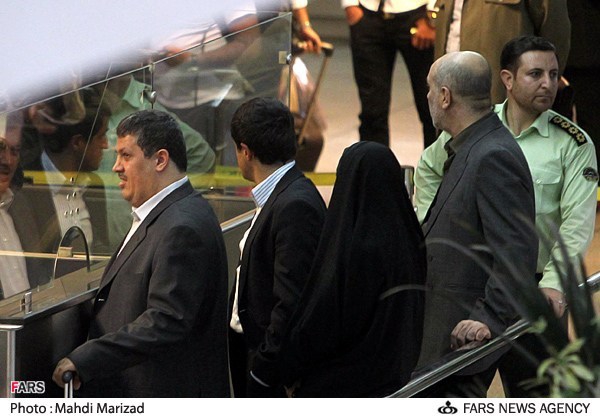Monday 24 September 2012 - 11:51
Story Code : 6133
Ex-Iran president's son returns from exile, faces charges
(Reuters) - The son of former Iranian president Akbar Hashemi Rafsanjani returned to�Iran�from exile to answer charges of inciting unrest after a disputed election in 2009, fuelling speculation that Rafsanjani's influence in Tehran may once again be growing.
Mehdi Hashemi Rafsanjani arrived in Tehran late on Sunday, Fars news agency reported, having spent three years in the United Kingdom following his alleged involvement in the widespread protests that followed the re-election of President Mahmoud Ahmadinejad.
Mehdi Rafsanjani had spent several days in Dubai and been expected to return to Iran on Sunday, an independent source told Reuters.
Analysts say his return indicates a deal has been agreed with authorities to resolve the charges he faces, and suggests his father's political fortunes may be reviving.
Akbar Rafsanjani played a central role in the Non-Aligned Movement summit in Tehran last month, being photographed walking alongside Iran's most powerful authority, Ayatollah Ali Khamenei, and sat next to U.N. Secretary General Ban-Ki Moon.
As oil sanctions continue to bite and with a presidential election set for next year, some are tipping the pragmatic yet conservative Rafsanjani as a surprise candidate.
The Rafsanjanis have faced heightened pressure from hardliners since the 2009 vote, which set off the deepest political crisis and worst unrest in Iran since the 1979 Islamic Revolution.
The former president is one of the founding figures of the Islamic Republic and a close aide to the revolutionary leader Ayatollah Ruhollah Khomeini.
But his backing of opposition candidates in 2009 and sympathy for opposition demonstrators incurred the anger of conservatives and led to a decline in his influence.
Mehdi Rafsanjani's return comes 24 hours after another member of the powerful and wealthy Rafsanjani family, his sister Faezeh, began a six-month jail sentence for "spreading anti-state propaganda".
Her conviction at the start of this year is believed to be over an interview she gave to an opposition news site in which she criticized human rights violations and economic policy in Iran.
The Iran Project is not responsible for the content of quoted articles.
# Tags











